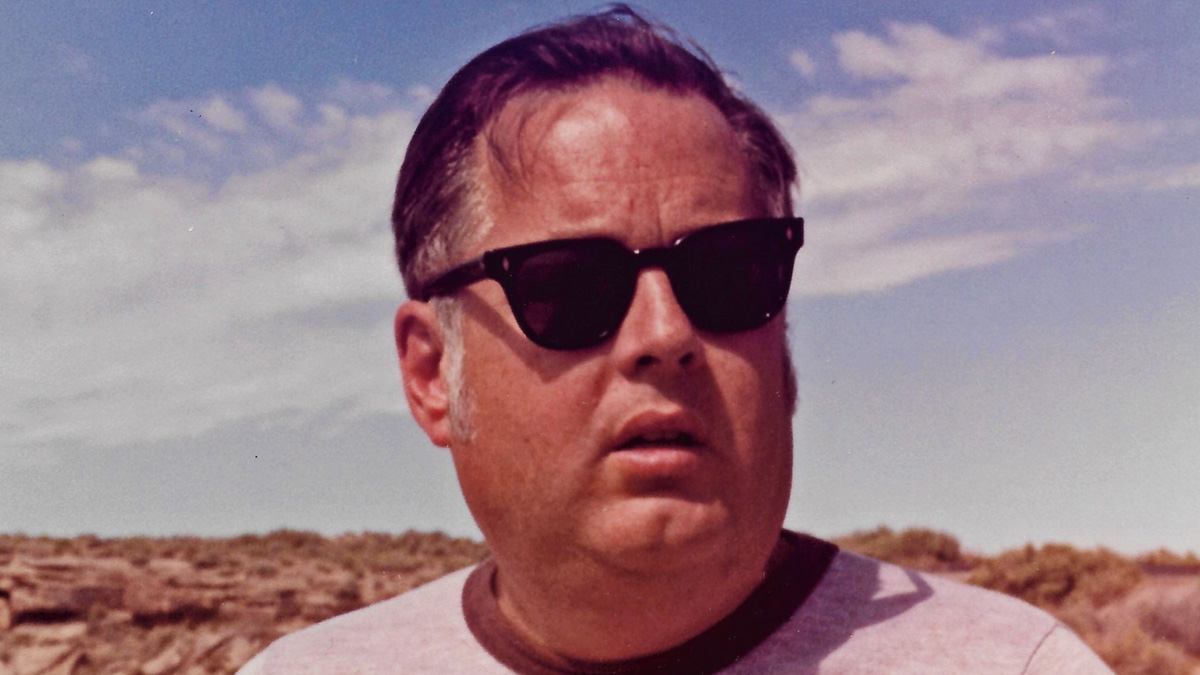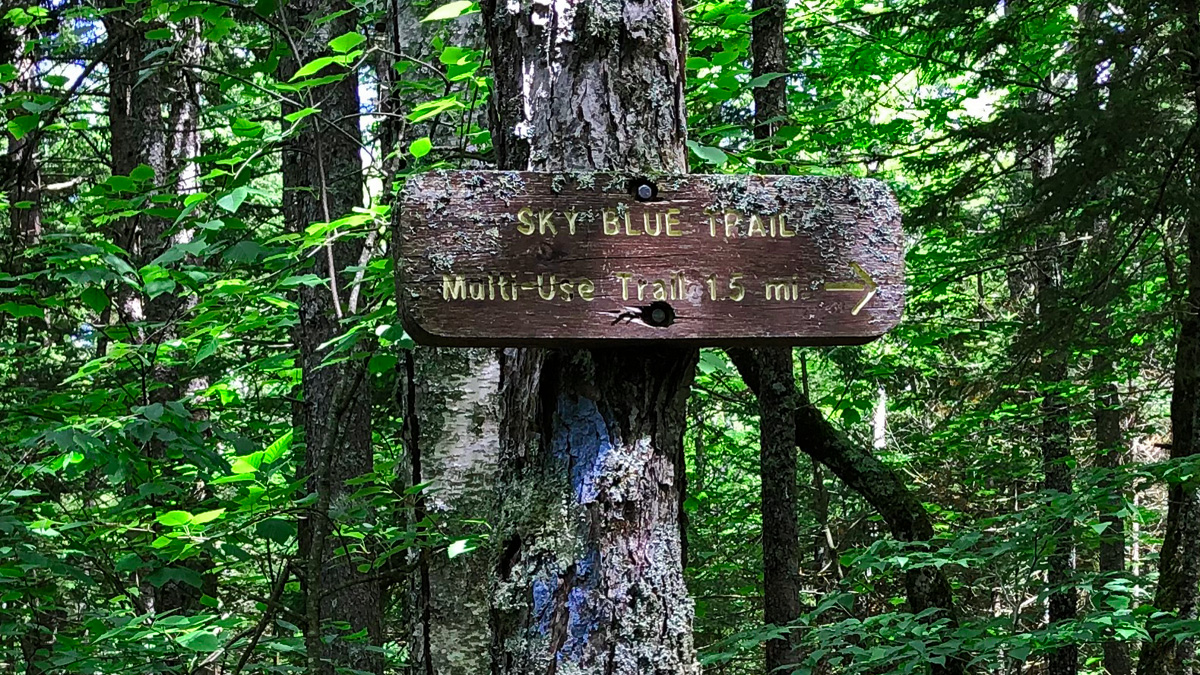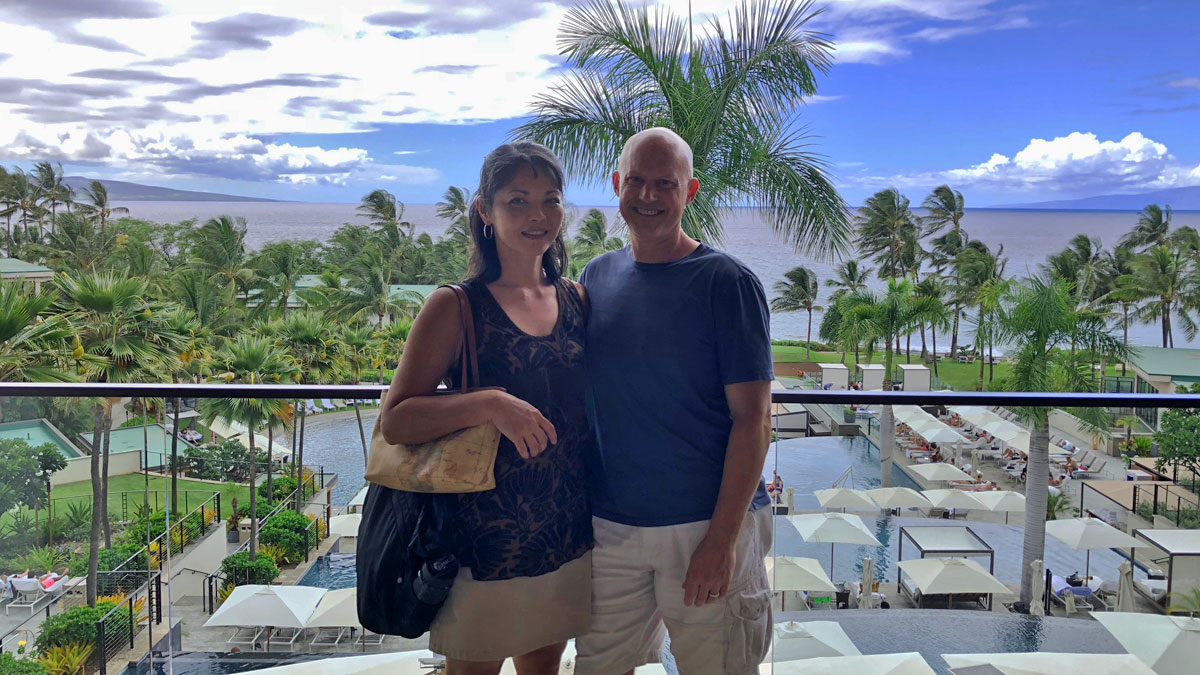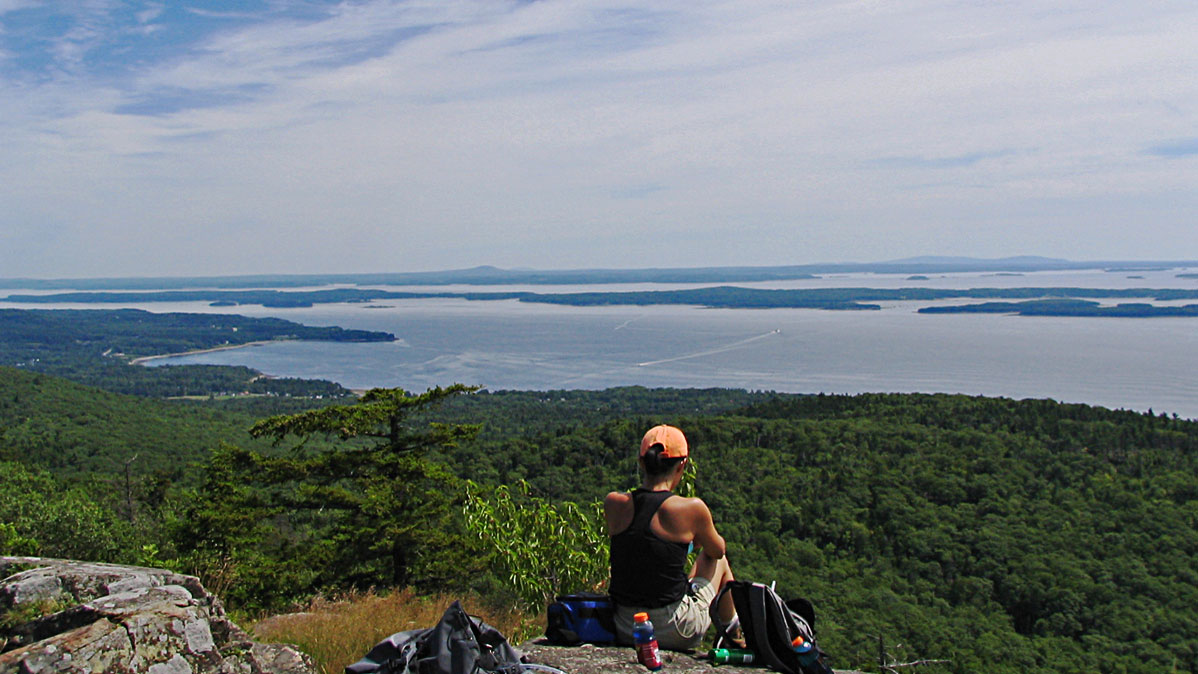
Five
A Time For Reflection
As the fifth anniversary of my wife's death looms, surely I must have learned something.
After everything I've been through, I needed to make sure that The Old Man's death didn't become just an afterthought (and even then, it almost did).
[from New York Minute, by Don Henley]
In these days, when darkness falls early
And people rush home to the ones they love
You'd better take a fool's advice
And take care of your own
One day they're here… next day they're gone

I knew what it was as soon as the phone rang—even in my surreal, startled-from-sleep stupor—because the old man had been in the hospital, struggling, for a week. "He's gone," my stepmom said, through tears. Essentially the same message I had delivered 3 years, 3 days earlier, when I called to tell them my wife had died. (The way I remember it, my line was "It's all over.") I can't really know what my stepmom was feeling, of course, but, in a general sense, I knew how she felt. This horror has just transpired. An hour ago, you were sharing your life with someone; now you're alone. It's an aloneness unlike any you've ever encountered, and (in my experience) one you've barely begun to comprehend. But that doesn't matter now, because you have responsibilities. They start with notifying people, but they'll go on for weeks as you make arrangements, close accounts, transfer titles, and eliminate most of the traces of a life, ended.
So… he's gone. Now what? How do I deal with the loss of someone who is both incredibly important and completely inconsequential? The first close family member I lost was my grandfather, and it was—to 17-year-old me—catastrophic. My mother was next, a loss that was truly devastating, and which put the loss of the first and, eventually, the other three grandparents into perspective… or so I thought. Twenty-seven years later, the magnitude of those losses was obliterated by the death of my wife. My grief was an iceberg, and I had merely been frolicking around above the surface, ignorant to the vastness of the pain below. She was everything to me, right up to her final moment. She changed everything I was, and losing her changed everything I will ever be. My dad provided me with an incredible childhood and helped shape me, of course, but then I became independent (you know… finally). I haven't needed his aid, approval, advice, or anything else for many years. Even when I still lived in Rhode Island, I probably only saw him a dozen times a year. Then we moved 5,000 miles away; in the nine years since, I only went back 3 times (building a house, battling cancer, and a global pandemic kept interfering).
The distance hasn't helped me to process this. I didn't go back for the funeral, because Rhode Island in February is a frozen hellscape. (I knew he would understand; we talked about it many times.) I finally went in June, laden with expectations (and apprehensions) which, once I got there, mostly dissolved away. I thought that walking into my childhood home and—for the first time ever—not finding him there would be A Thing. In the end, it was… nothing. I'm not a child, I knew he was dead, I knew he wouldn't be there, and he wasn't. Visiting his grave wasn't much different—that's where I expected to find him, and I did. I think the months of thinking about it—with growing anticipation—diminished the actual moment; it just couldn't live up to the hype.
Most of my family has died. One of the things I've noticed is how quickly much of the bad shit fades after they're gone. The thing about the old man, though, is that there really wasn't any bad shit (for me, anyway). He had some annoying quirks: he pronounced 'helicopter' and 'California' funny; he was reluctant to explain his reasons for… well, many things (there was a lot of "I just do" or "I just don't"); and he always took the circuitous route to asking for help (e.g., Dad: "You busy?" Me: "What do you need?" Dad: "I need to know if you're busy." Me: "I'm not sitting here doing nothing, but I can give you a hand if you need it." Dad: "No, I'll call your brother." Me: "Just. TELL ME. What you need.") Of course, I moved away, so my brother had to deal with ALL of that stuff. Sorry, Matty.
We did have some… I'll call them "strange" times. Growing up, I was always closer with my mother, but she died 30 years ago, leaving me with a man I didn't really feel connected to, and who spent 2+ years in a funk because he'd lost his wife. About a year and a half into that, I got divorced and moved back in with him. I remember, at the beginning, sitting across from him at meals and barely speaking a word. It took some long, awkward months, but we got past that, and we learned to talk, and before I knew it we were comfortable, we enjoyed each other's company, and we were closer than we'd ever been. That never really changed, even with the distance.
* * *
For months I've been trying to decipher this loss. I have moments, fractions of a second, where the ache hits me, but they're not sustainable. I feel a little guilty that I don't feel worse, that losing my mother was so much more difficult, that losing my wife was shattering, but I keep coming back to one thing that he was great at: being understanding about this shit. If he were sitting at his kitchen table right now, I could call him up, and he'd tell me, "Of course you don't feel as bad about losing me as you did about your mom and your wife. Those were different times, different places. It's fine. Just relax."
* * *
While it's true that I no longer need him, now that he's gone, I realize how comforting it was for him to just be there. To exist. We did talk occasionally—about a variety of things—but especially after I sent him links to the things I wrote about my wife. He didn't have a lot to say, but—it turns out—a lot wasn't necessary. After I sent him Countdown, we talked on the phone… except he mostly couldn't talk, because he kept crying. He'd start to say something, then go quiet for 10 seconds, then try and fail again. The funny thing is, I mostly don't remember what he said, once he managed to get it out; I just remember that what I had written moved him that much. (I recently told this story to a friend, and, in the retelling, I had a few moments where I couldn't talk.)
In the last 6 weeks or so, I've experienced significant changes in my life—positive ones, for the first time in years. I have finally begun to release myself from the bonds of my grief and really begin to put my life with my wife in the past. I started a new job and discovered amazing new people, who embraced me and made me part of their (work) family, and made it enjoyable to go to work every morning. I haven't laughed this much in… my god, years. Maybe ever. Extraordinary people, and I'm really still just getting to know them. And now, as I think about this wondrous new life, as I go home and sustain myself with the funny moments from my day (because the nights are, for the moment, still cloaked in solitude), I wish I could call him and tell him. For 3 years, most of my phone calls and emails were framed in sadness and hopelessness. I wish he could have known my newfound sense of joy and peace. He'd have been so pleased.
* * *
One of the great lessons I learned from losing my wife was tell people how you feel, and do not delay. I was lucky (in the worst sort of way) that I had plenty of warning before she died, and I grabbed the opportunity. I spoke with my dad a couple of weeks before he went into the hospital, and he actually told me, "I'm not doing too good… I think I'm dying." It's not that I didn't take him seriously; he did seem very weak. The truth is, I don't remember exactly what I said to him (something along the lines of "who woulda thought you'd live this long?"). Soon after that call, he had an appointment with his cardiologist, who sent him directly to the hospital, and—the details don't really matter—a week later, I got the phone call. "He's gone."
However, nearly a year earlier, I had sent him an email (which, by the way, contained much of the inspiration for Farewell). It was long, because I went on for a while about my wife before I got to this:
…[t]his is supposed to be about me thinking about my life, and the things I would wish I had said if I didn't. So you had to blunder through all that just so I could say Thank You, and I'm Sorry.
I want you to know that I know how good my childhood was, and I also know what an absolute fucking asshole I could be. And was, quite frequently. Anyway, I'm not gonna talk about the bad stuff (at all—we both know what all of it is, and that's enough), but I will float some of the good: Sundays at Buttonwoods [beach park] (with Two Guys [pizza] and Lawson Farms [ice cream] afterward); everything we saw on every cross-country drive (even the damned Corn Palace); the swing set, jungle gym, and rope swing, and then the pool; spaghetti and meatballs, with the fire roaring; every Sunday night football game on the little black & white (with the fire roaring); every holiday gathering (but especially the ones before I was old enough to know how, um… let's say 'flawed', my grandparents were); every Gaspee [similar to July 4th] and Christmas party. A few days ago, Matt and I were talking about fishing with Grandpa and Joe Austin [Grandpa's fishing buddy and one of the great characters of my childhood]… my god, those were great times (slightly less so when it was 45 degrees in April with a 23mph wind). The fishing you and I did (I don't know if my presence improved things for you, but I had fun). A thousand walks in the woods and a thousand stones skipped with [the other] Grandpa. I don't know how many trips to the Catskill Game Farm (RIP). When I think about it now, I assume Nana was pushing you to go, but I always liked the trips to visit Auntie Dot [on Cape Cod]. The Bay Queen [a local mini cruise ship] with Grandpa. That time he took me to Martha's Vineyard to deliver the baby scale. Every time we re-watched Dirty Harry, The Magnificent Seven, Shane, The Crimson Pirate, Death Wish, and The Taking of Pelham One Two Three (gesundheit).
The holiday seasons of my childhood were so good that I was never really able to enjoy them again after mom died. I know Matt and I were spoiled with presents, but that's not what lingers. It's the decorations, the annual Christmas tree purchasing expedition, a fire always burning, cookies and pies and turkey skin—the feel of home. Real cream, Ida. I read once that nostalgia is the ability to forget the things that sucked. I know it wasn't all wine and roses back then, but I really only remember the good stuff. But Thanksgiving and Christmas mostly died with mom, and everything else mostly died with my wife, so, for now anyway, I'm left only with wistful reminiscence.
[A perfect example… he left this world thinking that I knew only sadness. But that was a year and a half ago; morning (mourning?) has broken, and there is daylight on the horizon. I'm just sorry he didn't get to see it.]
Before the trip in June, as I was writing an early draft of this, I had this thought: sitting here at my desk in Hawai'i, he could easily still be at his kitchen table drinking coffee—maybe I should just cancel my flight, never go back, and let him stay in his chair forever (as Lusilla said in Gladiator, "This is a pleasant fiction, is it not?"). The idea, though appealing, was delusional, but, to quote Winnie-The-Pooh, "How lucky I am to have something that makes saying goodbye so hard."
Thanks, Dad. For everything.
* * *
Afterward
Speaking of Pooh Bear… I've posted 3 essays here about my wife, read them dozens of times, and now I see what I've created: my own enchanted place in The Hundred–Acre Wood, where I can visit people who no longer exist—save when I come here and read. This one is for my dad, then, so I can bring him back to life, every so often, and enjoy his company again… if only for a few minutes.
[from The Many Adventures Of Winnie The Pooh] Christopher: "Pooh, when I'm away…, will you come up here sometimes?" Pooh: "You mean alone? Just me?" Christopher: "Yes. And Pooh, promise you won't forget me? Ever?" Pooh: "Oh, I won't, Christopher. I promise."

As the fifth anniversary of my wife's death looms, surely I must have learned something.

I touched on this in Goodbye, Dad, but I wanted that one to be mostly about him, so I didn't talk about the rest of my trip, which was all about my wife. It's time.

I told the story of my wife's death once, but in a mostly big-picture sense. Now my compulsion to write has me scrutinizing the details—augmenting my fickle memory with texts, emails, and medical records.

After more than two years navigating the aftermath of my wife's death, I think I found the answer. The obvious next step, for me, was to tell her all about it. This may be hard to read, especially if you have suffered a significant loss of your own.

Two cancers, plus a brain disease—the whole story would take too long. So I'll (mostly) skip to the end.